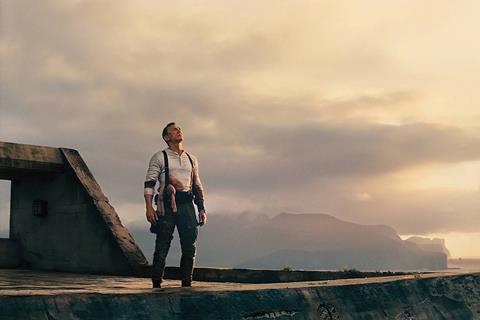
The Faroe Islands is dramatically raising its film reimbursement cap per year, going from a paltry €25,000 (200,000 DKK) annually to €540,000 (DKK 4m).
A new government elected in December is still putting the final touches on exact rules for the reimbursement, but it is expected to be in effect from March. It offers a rebate of 25% for budgets up to €500,000. For larger-budget productions, a 35% incentive may be possible.
Located halfway between Scotland and Iceland in the Northeast Atlantic, the Faroe Islands - population 53,000 – are an archipelago of 18 mountainous islands.
Tina i Dali Wagner had been lobbying for an increased cap since she took up the role of the head of the Film Institute (Films Husid) in 2018, the year the 25% reimbursement was introduced. “We have at least three to five projects from abroad, at an advanced stage, who want to shoot in the Faroe Islands and some of them are keen to shoot later this year,” she said.
Local productions with some intenational investment will also be eligible for reimbursement.
“The government can see that it’s not just supporting films, it’s an investment that creates an industry,” she added.
The best example of an industry boost so far has been Torfinnur Jákupsson’s Trom, a Danish-Faroese co-production that was the first major TV drama shot in the Faroes. REinvent financed and sold the seres which has aired internationally on Viaplay in the Nordic region, US and Japan; the BBC in the UK; ZDF/Arte in Germany and France; AMC+ in Latin territories; and SBS in Australia.
The lack of a robust incentive has likely lost the Faroe Islands several big shoots. The US studios have scouted for major projects in the Faroes but had not committed to production. The island provided a famous backdrop for James Bond film No Time To Die, where the climax happened at Safin’s lair on Poison Island.
Transformation
The reimbursement is administered by the ministry of trade; the ministry of culture has also this week boosted the funding for a smaller local film fund and the Film Husid’s operating budget. As the Faroes are under the jurisdiction of Denmark so are not eligible to be a lead production partner in Europe’s film support systems such as Eurimages or Creative Europe/Media.
“It’s really exciting, this really will change things in the Faroe Islands,” said Dali Wagner.
The Faroe Islands are participating in the European Film Market as part of the Scandinavian Films group in the Martin Gropius Bau for the first time this year. A delegation of 20 filmmaking talents are in town to take meetings.
“We came to Berlinale in 2019 to announce our new Film Institute, we have new films and projects to discuss as well as major works in progress from visionary filmmakers,” said Dali Wagner.
Local films include Anton Petersen’s Love Acts, now in post, and Sakaris Stora’s second feature The Last Paradise on Earth which is in pre-production. Additionally, Andrias Hoggeni plans to follow his Cannes-selected short with debut feature Anything For Her, he hopes to shoot in 2023.















![[L-R]: Amanda Villavieja, Laia Casanovas, Yasmina Praderas](https://d1nslcd7m2225b.cloudfront.net/Pictures/274x183/6/4/1/1471641_pxl_20251224_103354743_618426_crop.jpg)









No comments yet